The world changed more for our parents generation than it will for our children
Did we peak too soon?
While I finish the final revisions and prepare to submit the Letby legal AI modelling paper, I decided to pause for a minute and reflect on something completely different.
An email last night from a lovely friend of mine1 inviting me to a formal afternoon tea for her 50th birthday reminded me of my own impending similar milestone in the next few days. And of the birthday party held over the weekend for the now matriarch of my wider family.
People in at least one side of my family haven’t tended to be long-lived. Just this last weekend and for the first time in, as far as we can tell, recorded history, someone in our family reached the milestone age of 85. She was one of seven sisters who were at times very close. Sadly, most passed away many years ago from a variety of illnesses and infirmity ranging from glioblastoma to cerebrovascular stroke. Some had lives that were very tragically cut short, and the one who died after a stroke while having a long life filled with love and smiles was such a testament to moral quality and traditional values that she had put her own life and even marriage and having children on hold during the 1980s to stay home and care for their mother, the grandmother of the family, when she had had a stroke - only marrying after her mother and her own opportunity to have children had both passed.
While she was more correctly my younger brother’s aunt and some would say was only my step-aunt, the now-85 year old lady in the picture above was never anything other than Aunty Gwen to me. I cannot recall a time when she treated me any less than any of her blood nieces and nephews, and can say in all honesty that in my late teens when my own family was breaking apart, this elder stateswoman of our family treated me more like a son than some random, annoying step-nephew.
Looking at the photos of the huge gathering of family that were able to attend a thought struck me that I would like to explore with you here (I was not there because I: (a) am on the other side of the planet and the cost of flying over at such a tenuous time was more than I could float, and (b) expect any day to be told I am not getting what American academics call ‘tenure’ and, like so many of my colleagues lately, to have to start the search for a new job).
Consider
For those of you that can do the math, my Aunt was born in about the seventh month of World War II. Her early life was undoubtably framed by that singular event and, both the overwhelmingly negative and occassionally positive knock on effects it had for everyone. Leaving the death and destruction and other negative effects aside, let us consider the technology effects and changes she has seen across her own life.
The Humble Oven
In her early childhood in outback Australia, the common kitchen appliance of the day was a cast iron wood-fired stove.
My grandparents on my mother’s side of the family seemed to prefer to retain their old life, even as their children and grandchildren adopted all the latest new technologies on offer. I can recall even in my mid-teens when staying at my grandparents farm that my grandfather still awoke around 4am to load and light the wood stove before going out to tend the farm animals.
Over the course of her 85 years, my aunt has seen wood replaced with electric, electric replaced in large cities and towns with municipal mains-piped gas, and she was even an early adopter of the microwave oven - a technology that directly links back to the WWII of her childhood. I recollect in my teens seeing her cook all sorts of things in her mid-1980s Sharp microwave oven. If nothing else, the women of her generation were adaptable.
Telecommunications
By virtue of the fact that her father was stationmaster for a main-junction railway hub, my aunt had seen and used the telephone well before many of her peers. That said, she grew up at a time when maybe one or two people in your town, the local doctor and police sargent perhaps, had a telephone. And as a result, their telephone number might only be one or two digits. The rotary bakelite phone was often one of the first wired telephones country kids born in 1940s Australia would have seen.
Again, over her 85 years we have progressed from almost nobody having a home phone to almost everybody, even many children, carrying a wireless telephony device around in their pockets.
Entertainment
In 1940s Australia the most common form of entertainment was the radio. The only other device commonly available would have been the electric record player. My maternal grandparents had what was known as ‘an old 78’ - a record player that ran at 78 revolutions per minute that played records that were harder and thicker than anything you might see in a retro ‘vinyl’ shop today (and were often recordings of old fashioned country music singers like Slim Dusty and Smokey Dawson - names your own children will never hear).
While large towns may have had a cinema (I saw my own first ever movie, the 1986 Footrot Flats Movie called A Dog’s Tale, in the Regent Cinema), the first time many 1940’s-born Aussie kids would have seen a moving picture would have been when state schools were given projectors and film reels were sent around from school to school (until they wore out, fell apart or went missing).
During her life television went from a 1930s drawing-board concept to rare and black-and-white but mainstream (first launch in Australia in 1956 in Willoughby, NSW), and onto ubiquitous by the 1970s. She has seen BetaMax, VCR and DVD come and go and, like most people today, she has a large flat-screen LED tv in her lounge room with access to digital TV. Her grandchildren even watch TV and movies on tablet devices that, in her own childhood, were entirely unthinkable.
Computers
Australia’s first computer, CISRAC, ran its first test program in 1949 when she was only nine years of age. Although, calling something as large as a double garage using as much power as a big city suburb whose only claim to fame was that it was used to generate the first ever computer-generated music (a song called Colonel Bogey) a computer, is like comparing the Titanic to a high-powered jet boat of today. In her day many country girls didn’t go to high school, but if they did they could expect to be offered typing classes… using heavy manual typewriters. While over the course of her life she would have seen the introduction of electric typewriters and eventually the personal computer (PC) in places where she worked, the last time I was at her apartment (about 8 years ago) there was no PC to be seen. Her sons and grandchildren likely use magical laptops and Nintendo Switch and similar computing devices that were simply unnecessary to her life.
While I could go on to talk about the 70-80kw DeSoto Dimplomat and Chrysler Royal - heavy underpowered steel cars available in the mid-to-late 1950s when she would have been old enough to consider a drivers’ license, eventually became the cars of today with 250-300kws of power and computers that self-drive; folding maps for a region that became map books for a single large city that are now a touch screen on the dash of your car containing maps for an entire country or continent while also playing music and providing access to control some of the different technological features of your car; or books in a town library that are now on the internet and accessible on a tablet device that can contain an entire library.
Needless to say, between the later years of WWII and the turn of the millenium humans made huge technological leaps forward…
Only to stagnate.
I realise we think we are making advances in such things as AI, but much of this is smoke and mirrors and in many ways we have ostensibly slowed down or gone backwards. After spending many years making cars more powerful and economical, we reached the peak of power and efficiency in the 210kw 3.6 litre V6 Holden/Chevrolet/Cadillac LFX engine that I was regularly able to achieve over 900kms from on not quite a full 71lt tank of petrol (a little over 7.2lt/100kms or 32mpg from a full size, fully loaded family estate wagon). Even their V8 version became world famous for its inexplicable ability to also achieve 900kms from a tank - no mean feat for a 6.0 lt V8. Yet now we have supposedly technologically advanced environmentally friendly 4cyl hybrids that we are told are more economical and consume less petrol but which it turns out many barely achieve the same petrol consumption figures as their non-hybrid counterparts - and often have considerably worse highway mileage. I am yet to get anything like that sort of mileage from these “environmentally friendy” buzz-boxes.
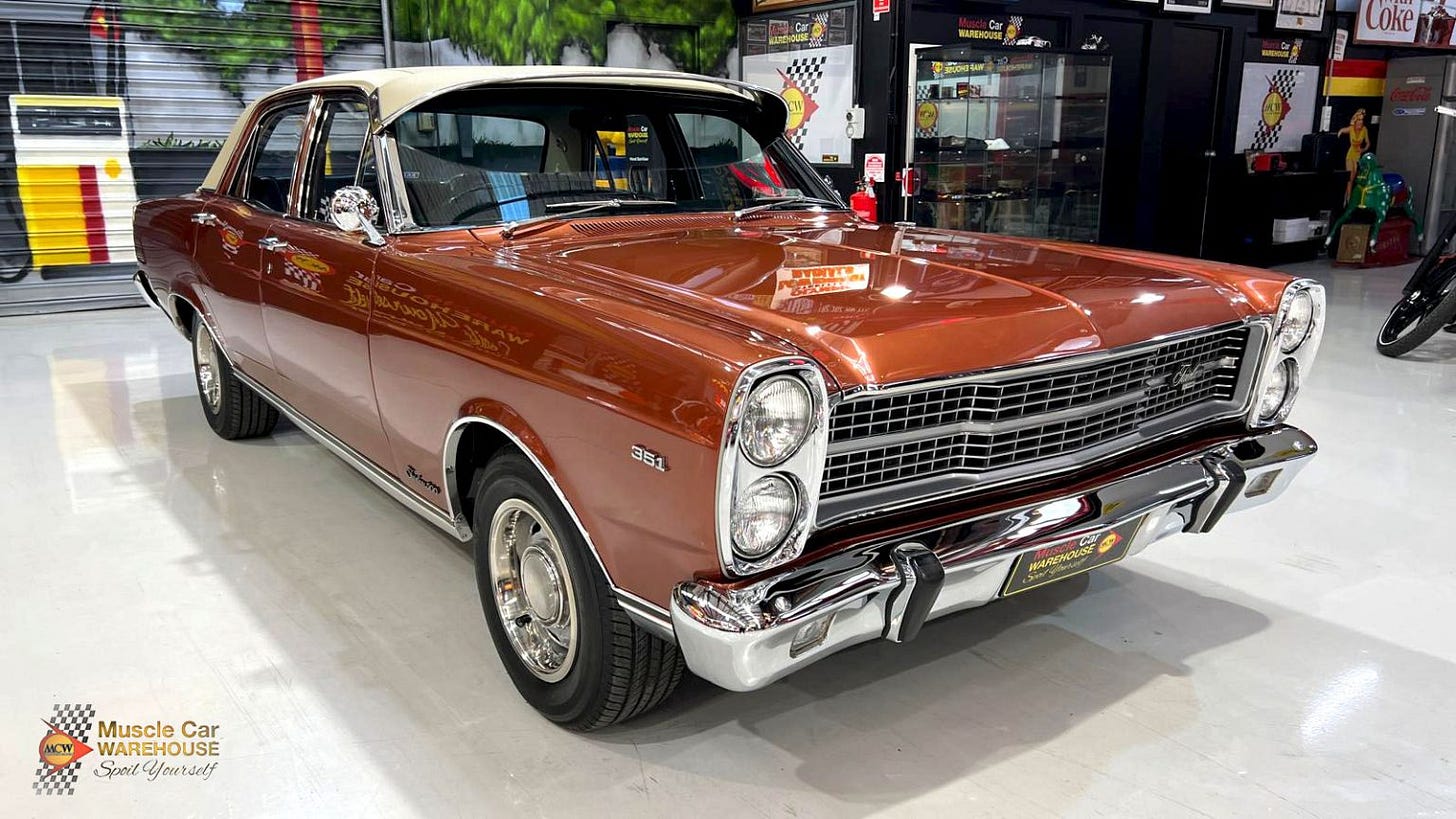
Our supposedly improving smartphones have ended up being very slight and incremental improvements on the model from the year before - so much so that the new iPhone SE is essentially based around a ten year old design. The same is true for many computer CPUs - year on year minor increments for most of the last 5-10 years. Even the operating systems and productivity software spends more time shifting deckchairs than coming up with truly novel features. We could perhaps say graphics cards (the graphics processing unit or GPU) are n exception to the rule, but we would have to admit that the 5o-series Nvidia cards just released are barely a few percentage points and tweaks over their 40-series predecessor.
We established significant improvements in medical ethics after WW2, hanging seven doctors at Nuremberg who had radically violated the human rights of mostly Jewish people and other Nazi prisoners of war. We developed a collection of tried and true medicines and eventually established evidence based medicine (EBM). While EBM isn’t perfect, and precision medicine might be better, events of the last five years have seen a reversal, or at the very least a corruption, of how informed consent and medical ethics in general operate. Over the last several decades we have also seen pharmaceutical companies doing more harm than good, charging ever-increasing and incredible amounts for life-saving medicines like insulin while erradicating long-serving and out-of-patent cheap known-safe medicines in favour of increasingly side-effect and risk-prone expensive under-patent medicines.
So, I contend again, we have at best stagnated. At worst, we are going backwards. Even a recent magazine article lists some feature of the ostensibly smoke-and-mirrors AI as 7 of the their Top 10 tech innovations of the last 5-10 years - with 5G phone networks, an incremental improvement on 4G, one of the three technologies that was not AI-related. The even more incredulous generic ‘green and sustainable technologies’ was listed at number 8. However, the the idea that wind generators that regularly create huge landfills of fibreglass and plastic fan blades and solar panels that will struggle to “save” more CO2 than was used in their construction are sustainable is equal parts ironic and laughable. Quite frankly, their list of Top 10 innovations does more to support my thesis that we have stagnated than it does to advance the idea that we are doing anything alike the technological advancement of my Aunt’s post-WWII generation.
I am reminded of a saying that one of the members of my extended family was often heard to say… it went something like this:
The smarter we get, the dumber we are.
Finally…
I believe that humans peaked during my Aunt’s lifetime… and that as the globalists and corrupt governments continue to steal from us and misdirect our resources we are seeing lesser amounts of lower quality technological advancement. Further, I believe this trend will continue into our children’s and grandchildren’s era. Are we heading towards the future described in Idiocracy? Possibly. Unless we do something soon to halt the brain drain, the outcome could be far worse.
Later this week,unlike my aunt, and after a full day of work, I will spend five minutes and two fingers of single malt celebrating my own birthday milestone. No fanfare. No cake. No presents. I will commisserate for the way things are in modern Australia, canada and the UK. I will commiserate for all the things I wanted to do in my life but was never able to. I wanted to learn to play piano and go on to write music and at least once to conduct an orchestra, but I ended up someone that taught myself to sit at the keyboard and thump my way through a poorly sight-read piece of sheet music. I wanted to learn to fly aeroplanes but ended up someone who had lessons and landed a few small planes but that was it. No PPL or CPL, and while I landed an A320 in a airline simulator I was never able to sit at the controls of a real jet. I wanted to write novels but am so censored that I can’t even get an academic paper peer reviewed any more. I wanted to climb up to Machu Pichu and photograph the sunrise across the ruins but… well… that is so unlikely now that I almost don’t mention it at all. The sad truth is that like many of you, the few times in my life when I briefly had the financial resources to do one or two of these things I didn’t have the available time. And when I found myself having the time to do them I no longer had the financial resources. For many, life at the bottom of the pile can be best described as a life half lived.
In conclusion, I think my aunt should be proud to have become the first person in her family to live to 85 years of age. In many ways her longevity comes in spite of and not because of the technological advancements around her. She drove trucks, she raised children, she has two hands that are all green thumbs and she ballroom danced like someone out of The Sound of Music. The world she awakes to tomorrow bears almost no resemblance to the world she was born into, and yet, in my honest and heart-felt opinion, it is all the better for her having been in it.
Happy Birthday Aunty Gwen!
I won’t mention her name here because just like I was brought up to believe you never ask a lady her age, I don’t think it right to advertise a lady’s age either. Besides, I don’t know if she has made it more public and don’t want to do so if she has not.




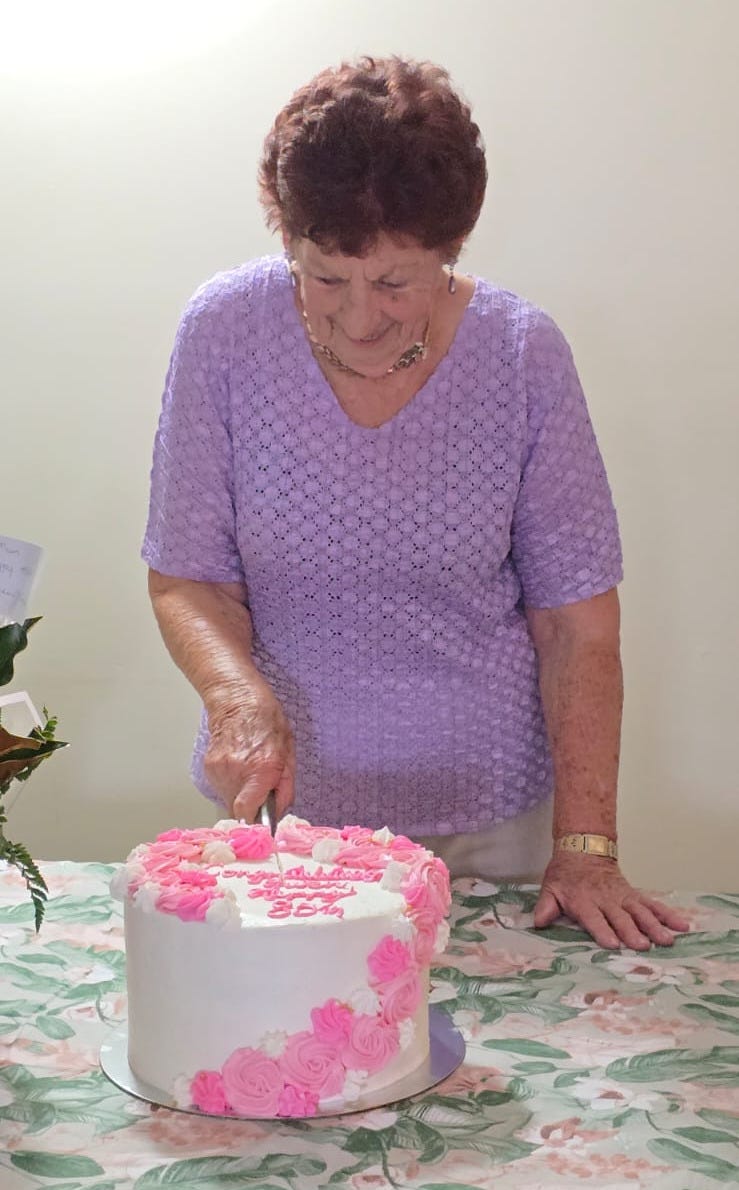

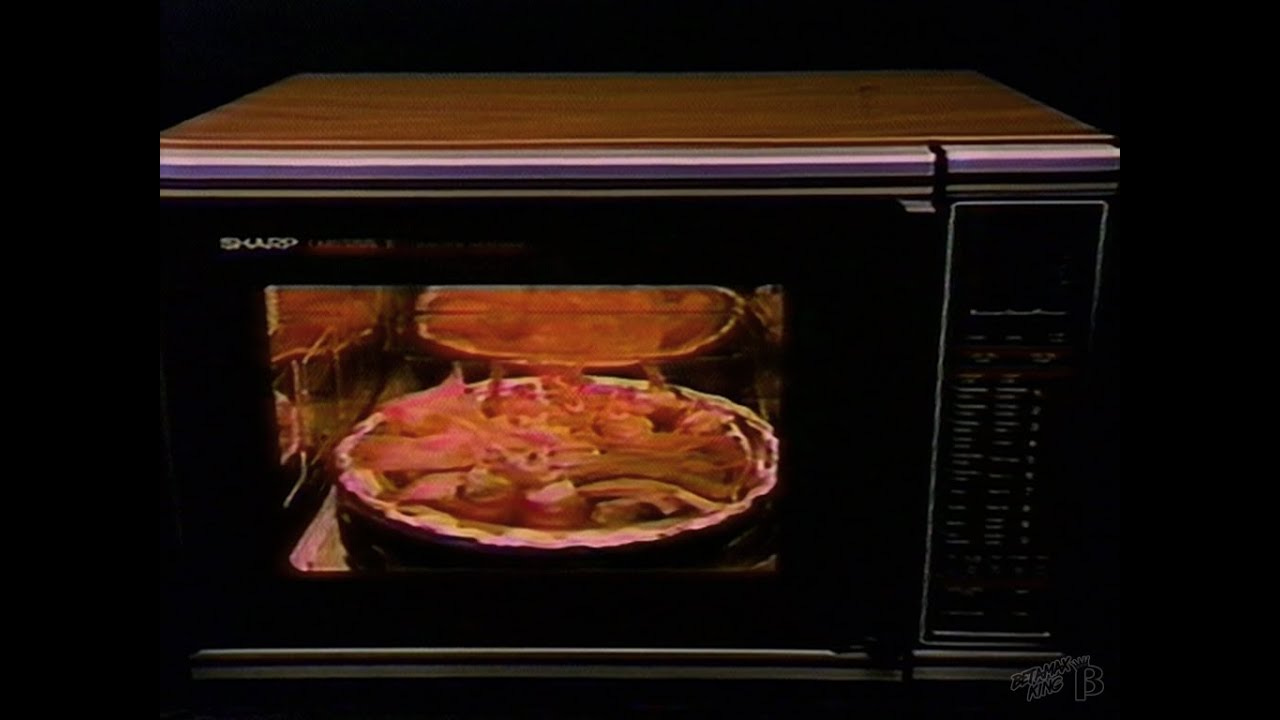
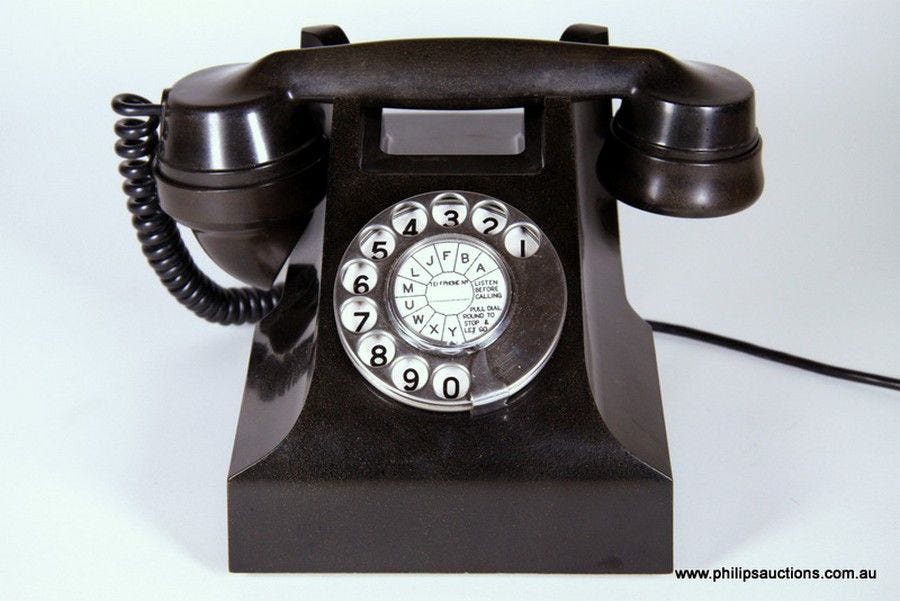
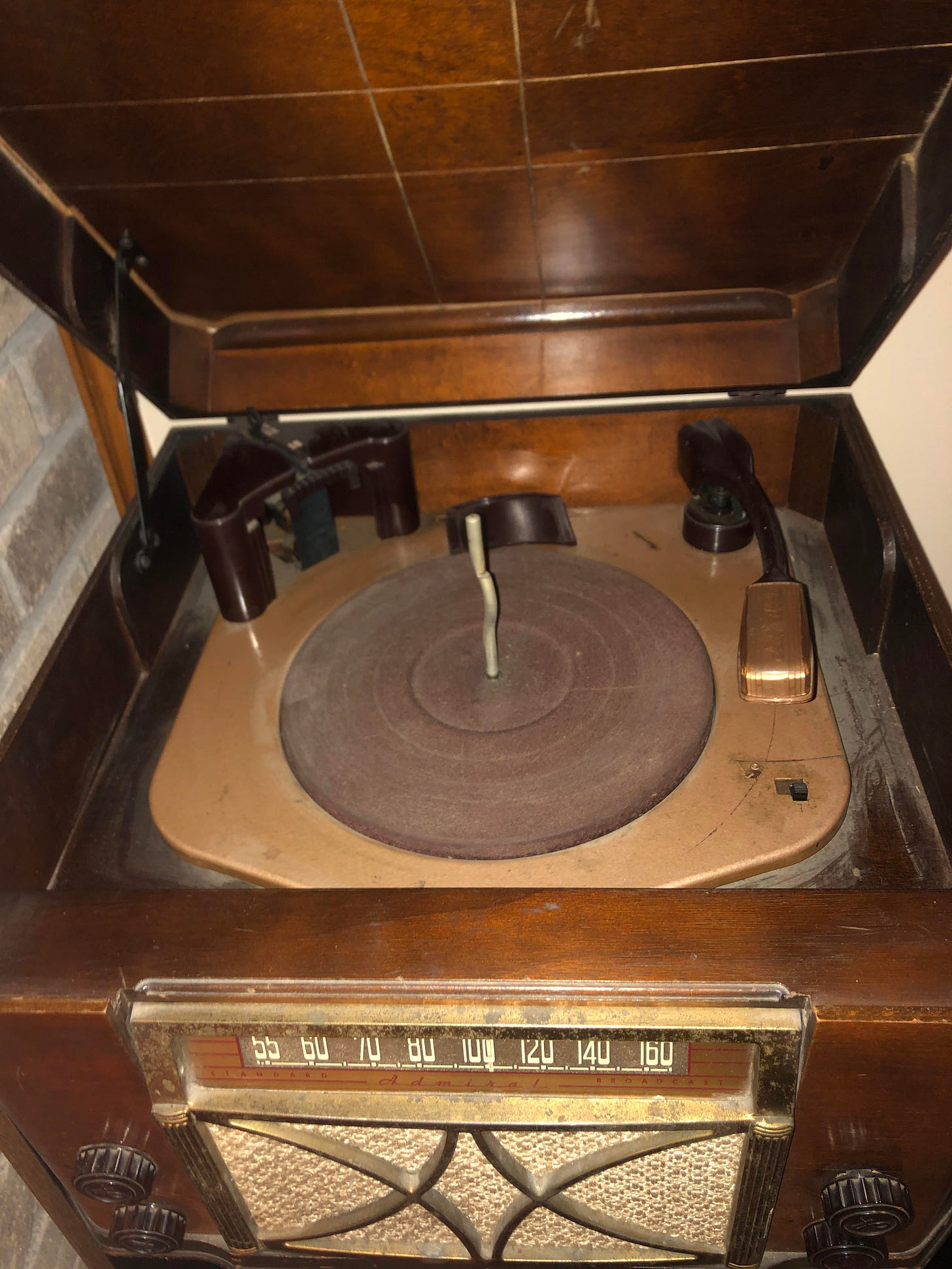

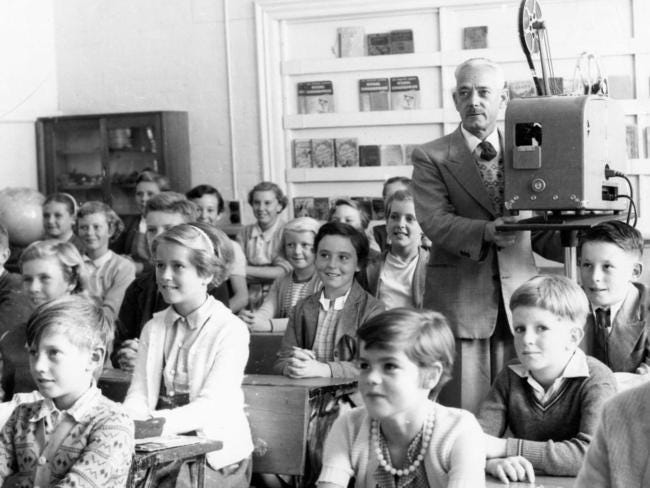

That was a lovely read, thank you Scott. Our elders are to be cherished, that’s for sure. The big questions for me include are we happier and are we healthier as time and technology drives ‘progress’. The answer I fear is no. Life was so much simpler, we were grateful, we enjoyed the magic in everyday things in life. We grew up appreciating fresh food and home cooking without a cookbook or recipe to be found in the kitchen. Living at the coast but not far from the countryside, we knew where our food came from. It was fresh and unprocessed without air miles attached. With the exception of the revolutionary packet Vesta curry my older sister cooked for lunch on Saturday sometimes and packet jelly cubes, I don’t remember processed or heavily packaged food.
With the recent blackout in parts of Europe, we must wonder how our kids will manage without their smart phones and favourite fast foods, but more how will our public services cope with a solar flare that interrupts things or worse an EMP? As a techno skeptic, and someone fearful of our times, I must confess the gravity water filter and the Kitchen in a box Cobb BBQ are at the ready, just in case! But I’m not sure what would replace the prescription meds that now seem to go with simply getting older. Maybe with higher blood pressure, our brains and bodies would be better perfused!
Very poignant.
To some extent I would agree with you about technology, but on other paw, we mustn't forget the fact that there is almost certainly a hell of a lot of tech development that is kept hidden from the public. It has been this way for some time, I would also suggest.
Better tech available to everyone, after all, would mean the globalist cabal relinquishing social control.
Cheap, clean energy for example. The fusion torch. Better ultracapacitors for battery recharging (see Tesla).
Somewhere, where the likes of you and me are not permitted, lies some wonderful stuff. Such is the psychology of the monsters who want to rule the world.